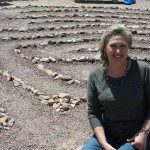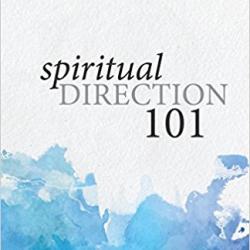 Apprenticing is how spiritual direction training took place for centuries. This ancient mode is again popular, only now it’s portable and highly personalized, thanks to ease of online conferencing. I have been training apprentices since 2019 in the Apprentice Training Program of the Phoenix Center for Spiritual Direction, using a curriculum I created that focuses on the basic skills needed to do spiritual direction. Because of its popularity, I’ve added two mentor/trainers to respond to the need.
Apprenticing is how spiritual direction training took place for centuries. This ancient mode is again popular, only now it’s portable and highly personalized, thanks to ease of online conferencing. I have been training apprentices since 2019 in the Apprentice Training Program of the Phoenix Center for Spiritual Direction, using a curriculum I created that focuses on the basic skills needed to do spiritual direction. Because of its popularity, I’ve added two mentor/trainers to respond to the need.
What an Apprentice Is
A spiritual direction apprentice studies with an experienced director who is also a good teacher. Much like apprentices in other service jobs, they learn both from instruction as well as supervised practice in the field.
Who is a good candidate for Apprenticing?
Anyone who feels a strong pull to become a spiritual director and who has actually been in spiritual direction for awhile should consider training of any kind, including apprenticing. In the Apprentice Training Program of the Phoenix Center for Spiritual Direction we look for participants who have already done a lot of spiritual formation work (since we are less focused on formation and more on skills). Good candidates include anyone who has a background (self taught or otherwise) in spiritual formation, retreats or religious education. Apprentices include lay people, clergy, chaplains, life coaches, executive coaches, seminary students, seminary professors, mental health professionals and people with medical backgrounds, just to name a few. Spiritual directors-in-training come from a myriad of religious and spiritual traditions: Christian, Jewish, Sufi, Buddhist, hybrids of two or more traditions and “spiritual but not religious.” If you are curious about your readiness for apprenticing in this area, talk with your spiritual director and research the possibilities.
Benefits from Apprenticing
While there are many ways to train as a spiritual direction–most of which involve working within a cohort–for some people flexibility is a priority. They simply cannot take time off to show up at these programs. In my program , apprentices and mentors determine when we meet–and it could be mornings, evenings or even weekends. The mentor or apprentice can easily reschedule classes when life interrupts their plans. Learning in the program can go at the pace that works best for the apprentice–as quick as 9 months or as long as a few years.
Apprentices also benefit financially because there is little to no overhead costs to the trainers, so these programs are usually more affordable than traditional programs.
What I hear from the graduates of my apprentice program is that they especially appreciate the one-on-one attention and the ability trainers have to dive deep with them in areas where they need a bit more instruction.
How to Find a Mentor
There are a few apprentice programs out there, so do an internet search and find them. Use the contact forms on the websites to reach the directors and then interview the person who would be training you and ask a lot of questions. Find out what they mean by words like practicum (practical experience doing spiritual direction) and how it is done. In my program, apprentices find directees (clients) who are willing to be video recorded a few times so the trainer gets to see how the apprentice interacts with the directee. Make sure supervision is part of the program. Supervision is the discussion of a case study based on something that occurred during a session that the apprentice needs to understand more fully. Usually it centers around the apprentices emotional reactions to content brought up in spiritual direction. Do not pay money for a program that doesn’t offer or require supervision of your practicum experiences!
Outcomes from Apprenticing
Apprentice program graduates receive the same Certificate of Completion that people in traditional programs receive. There is no standard certification or evaluations for spiritual directors. But people looking for a spiritual director frequently look for ones with training.
I welcome email inquiries about the Apprentice Training Program of the Phoenix Center for Spiritual Direction either on the contact section of the webpage or at [email protected]. Here’s hoping you find just the right program for your needs!














